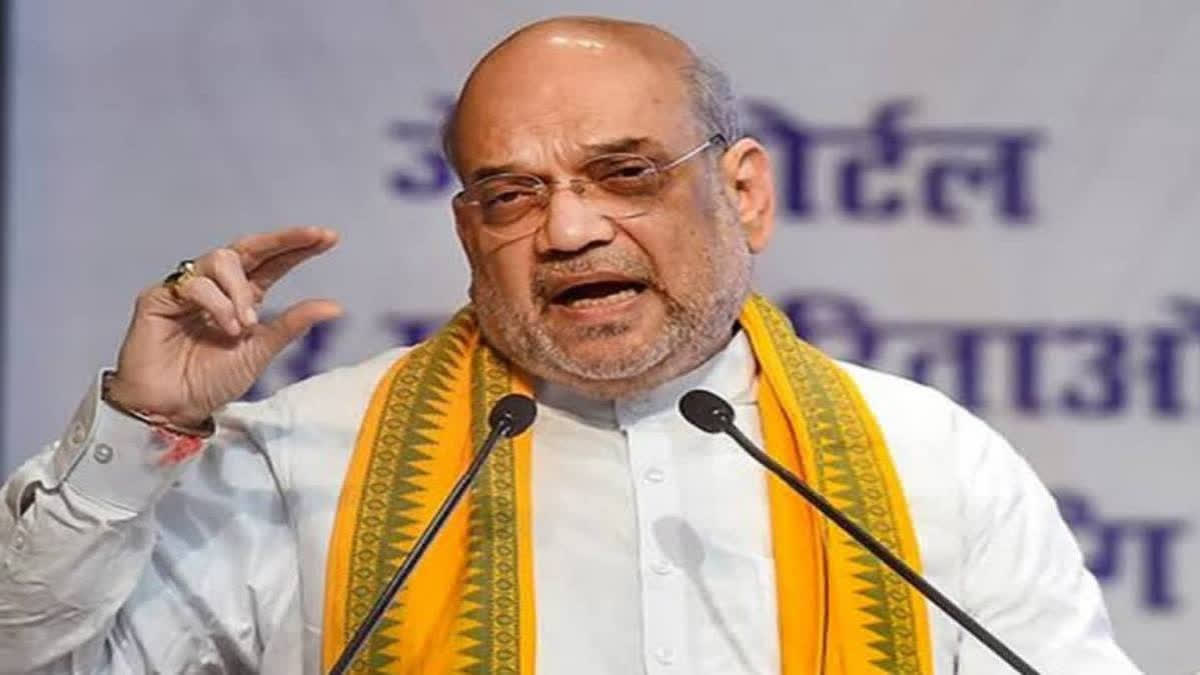New Delhi: Reiterating India’s commitment to fight terrorism, Union Home Minister Amit Shah on Thursday said that his government will bring a national counter-terrorism policy and strategy soon to fight the entire 'ecosystem' of terrorism. “The Ministry of Home Affairs will soon introduce a National Counter-Terrorism Policy and Strategy to fight terrorism, terrorists and the entire ecosystem supporting them,” said Shah during the inauguration of the two-day-long ‘Anti-Terror Conference-2024’ here.
Shah said that in the 10 years since Narendra Modi became the Prime Minister in 2014, the Government of India has moved ahead with a concrete strategy against terrorism.
“Modi ji’s slogan of ‘Zero Tolerance against Terrorism’ has been accepted not only by India, but by the entire world. In the last 10 years, a strong ‘ecosystem’ has been built in India to combat terrorism. Although much remains to be done, if we take an overview of the work done over the past 10 years, it can be considered satisfactory,” he said.
The annual conference, being organised by the National Investigation Agency (NIA), over the years emerged as a meeting point for operational forces; technical, legal and forensic experts and agencies engaged in counter-terrorism for deliberations on issues impacting national security and threats emerging out of terrorism.
Shah said that the NIA is not just an investigating agency and under its aegis, anti-terrorist activities across the country should be compiled and promoted and measures should be taken so that the investigating agency stands firmly in the court and the anti-terror mechanism is strengthened.
“States have their own geographical and constitutional limitations, while terrorism and terrorists have no boundaries. Terrorists engage in both international and interstate conspiracies, and to develop an effective strategy against them, we need to build a strong system through conferences like this. This will help curb activities such as terrorism, narcotics, and hawala operations, which threaten the country’s borders and economy,” said Shah.
He expressed confidence that this conference will not only serve as a platform for discussion, but will also bring forth actionable points that will strengthen our fight against terrorism. Shah said that the true utility of such conferences lies in taking the actionable points down to the police station and beat levels. “From the beat officers to the Director General of NIA, the entire system should be successfully made aware of the threats posed by terrorism,” he said.
The home minister mentioned that fighting terrorism does not merely mean uncovering a few conspiracies; rather, it means legally empowering the agencies fighting terrorism and creating an ecosystem that strengthens our fight against it.
Shah noted that on August 2, 2019, amendments were made to the NIA Act, which added new offences and granted extra-territorial jurisdiction, allowing the NIA to conduct investigations abroad as well.
“On August 14, 2019, amendments were also made to the UAPA, empowering authorities to seize property and designate individuals and organizations as terrorists. The Ministry of Home Affairs has coordinated efforts for deradicalization, various ministries have developed their strategies, and MHA has established an institutional framework for this purpose,” said Shah.
He said that in the year 2020, a 25-point integrated plan was formulated to control the funding of terrorism, with a range of measures from jihadi terrorism to northeast, Left-Wing Extremism, fake currency to narcotics.
“From FCRA to radicalisation financing to smuggling of illegal arms, the work was done to break the ‘ecosystem’ with coordination among various agencies and it has yielded very good results. Significant changes were made in the functioning of the Multi-Agency Centre (MAC),” he said.
Shah mentioned that the National Memory Bank was established, and steps were taken to implement it effectively. “A central database based on intelligence was also created. Several other databases have been developed, which can benefit efforts to root out terrorism,” said Shah.
